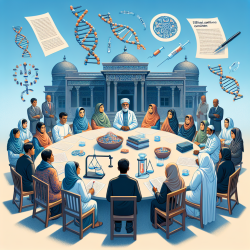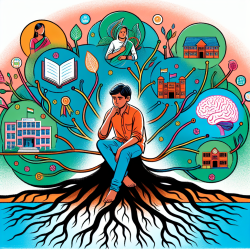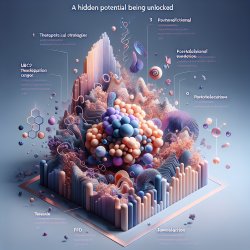Introduction
With over 70 million people forcibly displaced globally, including 26 million refugees and 3.5 million asylum seekers, the need for effective healthcare and social support systems is more critical than ever. This displacement is often accompanied by significant socioeconomic and healthcare barriers, making these populations particularly vulnerable to physical and mental health risks. Epigenetic research offers a promising avenue for understanding and addressing these issues by exploring how psychological and environmental exposures affect health across generations. However, conducting such research with refugees and asylum seekers presents unique ethical challenges that practitioners must navigate carefully.
The Promise of Epigenetic Research
Epigenetic factors act as mediators between genes and the environment, influencing gene expression without altering the DNA sequence. This makes them valuable biomarkers for understanding the impacts of life adversity and disease states. Recent studies have highlighted how violence and trauma can lead to epigenetic changes that affect both physical and mental health, potentially transcending generations. For refugees and asylum seekers, this research could lead to the development of protective measures that promote psychological resilience and reduce health risks, particularly for children impacted by war and forced migration.
Ethical Challenges
Despite its potential benefits, epigenetic research with refugees and asylum seekers raises significant ethical concerns. One major challenge is obtaining informed consent, which can be complicated by language barriers, cultural differences, and the complex nature of epigenetic data. Researchers must ensure that participants fully understand the risks, benefits, and uncertainties associated with the research.
Additionally, the collection of biological samples may conflict with cultural or religious beliefs, and the potential for data misuse poses risks of stigmatization and discrimination. There is also the concern that the research could be used to exploit or manipulate vulnerable populations, particularly if compensation incentives are perceived as undue inducements.
Addressing Ethical Concerns
To conduct epigenetic research ethically, practitioners must develop strategies to minimize potential harms and maximize benefits. This includes engaging community members in the research design to identify communication barriers and culturally sensitive issues. Collaborating with local partners can also help ensure that the research addresses the needs of the population and provides appropriate benefits, such as skill training or health education.
Protecting the confidentiality of participants is crucial, especially given the sensitive nature of epigenetic data. Researchers must implement strict measures for data handling and storage, and consider not conducting research if confidentiality cannot be guaranteed. Moreover, de-identifying and unlinking personal information from samples is essential to protect participants' privacy rights.
Conclusion
While there are ethical challenges associated with conducting epigenetic research with refugees and asylum seekers, these should not deter practitioners from pursuing important research questions. By implementing strategies to address these challenges, researchers can ensure that their work contributes positively to the lives of these vulnerable populations. Collaborations with migration advocacy groups can further aid in developing ethical guidelines specific to this research context.
To read the original research paper, please follow this link: Conducting epigenetics research with refugees and asylum seekers: attending to the ethical challenges.










